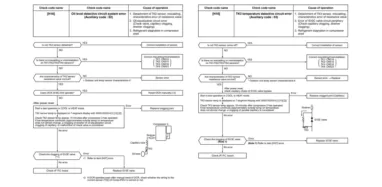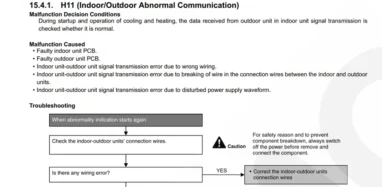The most common problem every air conditioner owner face is a failed capacitor. It happens frequently and you have to spend a lot of money on repair and replacement.
In this article, you will learn why the air conditioner capacitors fail, what happens when an AC capacitor fails; and what steps you can take to prevent that from happening.
What causes an air conditioner capacitor to fail?
Here are the major reasons that cause an air conditioner capacitor to fail:
1. Overheating
Capacitors get damaged by overheating.
The first way a capacitor can overheat is due to the sunlight.
If you have installed the air conditioner on a rooftop or somewhere where it gets direct sunlight, the intense heat of the sun will damage the capacitor and stop it from functioning normally.
The second way a capacitor can overheat is when you run the air conditioner too hard for a long time.
On a very hot day, the air conditioner is running almost all the time. It works hard a lot to meet the temperature set on the thermostat. In this process, the capacitor overheats and stops working.
We recommend you set the thermostat temperature a bit higher on a hot day so the AC can work smoothly and there is less pressure on the capacitor.
2. Power surges
Power surges are the most common reason behind AC capacitor failure.
Sometimes, the electric grid of your area can malfunction. It may supply very high or very low voltages to your house. If your air conditioner was running during any such fluctuation in voltage, its capacitor may get damaged and stop working.
Similarly, when the electricity comes back after a power outage, the sudden surge of power may also damage the capacitor of your air conditioner.
Installing a surge protector can help you secure your air conditioner from these dangerous power surges.
3. Lightning strike
Is it safe to use ac during lightning? During a thunderstorm, a bolt of lightning can strike your air conditioner
It has so much power that the entire electrical system of your air conditioner (including the capacitor) gets burned instantly.
4. End of capacitor’s life
How long do capacitors last on air conditioners? An air conditioner capacitor cannot work forever. It has a limited life of approximately 20 years.
Once the capacitor reaches this age, it stops functioning normally.
However, don’t be surprised if your air conditioner capacitor is not very old but it still stops working.
The reason is that various factors can decrease the life of your air conditioner capacitor such as overheating, power surges, lightning strikes, etc.
5. Problems in other AC parts
Sometimes, technical problems in other parts of the air conditioner can also result in capacitor failure.
For instance, if the motor in the AC gets blocked or burned, the entire electrical load of the AC is shifted to the capacitor. However, the capacitor gets overloaded because it is not built to tolerate an intense electric load. Consequently, the capacitor gets destroyed and stops working normally.
6. Physical damage to the capacitor
If the air conditioner unit gets hit by some object or it falls from somewhere, chances are that the capacitor can get damaged due to it. Hence, it will stop working.
What happens if an air conditioner capacitor fails?
When the capacitor of your air conditioner fails, the following things might happen:
- The temperature of the room will always be less or much more than what you have set on the thermostat.
- The air conditioner breaker will trip.
- The fan of the condenser unit will stop spinning.
- Your air conditioner will struggle to start or it will turn on & off frequently.
- The air conditioner will not cool the room effectively.
What are the signs of a failed air conditioner capacitor?
Here are the major symptoms that show there is something wrong with the capacitor of your air conditioner:
1. No cool air coming from AC
If the air conditioner is not blowing cool air, there might be a problem with its fan, filter, thermostat, and capacitor.
2. High electricity bill
Does aircon use a lot of electricity? If there has been an unusual increase in your electricity bill (especially when you run the air conditioner) it can be because of a bad capacitor.
When the capacitor of an air conditioner does not work properly, the AC works very hard and consumes more energy.
Hence, your energy bill goes up.
3. The AC shuts down itself
The capacitor powers your AC.
If something goes wrong with the capacitor, the AC does not get proper energy. Hence, it turns off itself.
4. The AC takes too long to start
The capacitor gives a big jolt of current to the motor of your AC at the time of starting up. This helps the air conditioner to start quickly.
If your AC unit is taking very long to start, it might be because of a failed capacitor.
The motor of the AC does not get the required jolt of current and takes more time to start.
5. The AC is not starting
As we told you above, the job of a capacitor is to provide an initial jolt of current to the motor of an air conditioner. It helps the air conditioner to start smoothly.
If the capacitor of an air conditioner fails, the AC does not get the electric current it needs to start.
So, the AC unit fails to stop.
6. Humming sound coming from the AC
If your air conditioner is not sounding normal and you can hear a humming sound coming out of it then you need to check the capacitor.
Usually, the AC gives a humming sound when its capacitor is not functioning properly.
7. The AC emitting smoke
If there is smoke coming out of your air conditioner, it is a sign that the capacitor has failed.
Most of the time, this smoke has an acrid smell because of the chemicals present inside the capacitor.
8. Chemicals leaking
If you can see some chemicals leaking out of the air conditioner, it can be due to a capacitor failure.
What to do when the air conditioner capacitor fails?
If your air conditioner capacitor stops working, there are two options:
- Repair the capacitor
- Replace the capacitor
You will have to call a technical expert who will check the air conditioner properly and tell if you need a new capacitor or if the existing one can be repaired.
Don’t try to fix anything yourself if you have no idea how these things work because you can hurt yourself or damage the AC unit.

